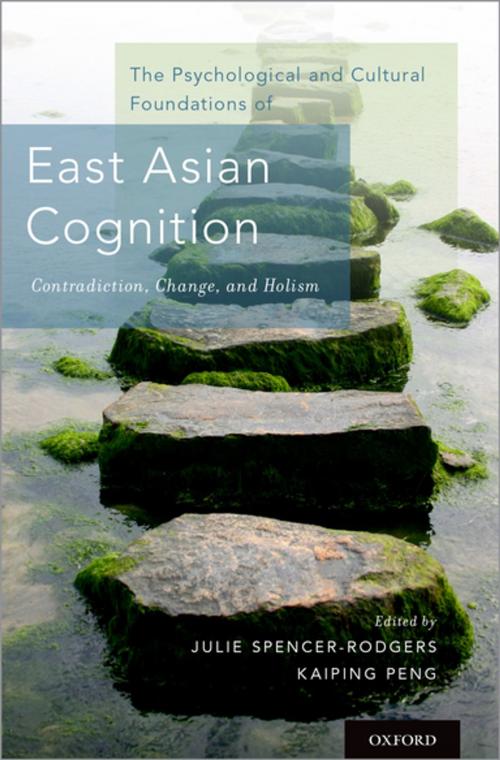The Psychological and Cultural Foundations of East Asian Cognition
Contradiction, Change, and Holism
Nonfiction, Health & Well Being, Psychology, Occupational & Industrial Psychology, History, Asian, Southeast Asia, Social Psychology| Author: | ISBN: | 9780199348565 | |
| Publisher: | Oxford University Press | Publication: | December 7, 2017 |
| Imprint: | Oxford University Press | Language: | English |
| Author: | |
| ISBN: | 9780199348565 |
| Publisher: | Oxford University Press |
| Publication: | December 7, 2017 |
| Imprint: | Oxford University Press |
| Language: | English |
The unprecedented economic growth in many East Asian societies in the few past decades have placed the region center stage, and increasing globalization has made East-West cultural understanding of even greater importance today. The Psychological and Cultural Foundations of East Asian Cognition is one of the most comprehensive volumes on East Asian cognition and thinking styles to date, and is one of the first to bring together a large body of empirical research on naïve dialecticism and analytic/holistic thinking theories stemming from Richard Nisbett's highly influential The Geography of Thought. Edited by Julie Spencer-Rodgers and Kaiping Peng, The Psychological and Cultural Foundations of East Asian Cognition expertly examines the psychological, philosophical, and cultural underpinnings and consequences of these thinking theories for human thought, emotion, and behavior. In the past couple of decades, research on this topic has flourished, and East-West cultural differences have been documented in almost all aspects of the human condition, from the manner in which people reason and make decisions, conceptualize themselves and those around them, to how they cope with stress and mental illness, and interact with others, including romantic partners and social groups. Contributions to this volume cover such fascinating and diverse topics as cultural neuroscience and the brain, lifespan development, attitudes and group perception, romantic relationships, the adoption of foreign mindsets and perspectives, creativity, emotion, the self-concept, racial and ethnic identity, psychopathology, and coping processes and wellbeing. Further, the research featured within this volume has practical implications for business and organizational management, international relations and politics, education, and clinical and counseling psychology, and may be of particular interest to business professionals, managers in government and non-profit sectors, as well as educators and clinicians working with East Asians and Americans of East Asian descent.
The unprecedented economic growth in many East Asian societies in the few past decades have placed the region center stage, and increasing globalization has made East-West cultural understanding of even greater importance today. The Psychological and Cultural Foundations of East Asian Cognition is one of the most comprehensive volumes on East Asian cognition and thinking styles to date, and is one of the first to bring together a large body of empirical research on naïve dialecticism and analytic/holistic thinking theories stemming from Richard Nisbett's highly influential The Geography of Thought. Edited by Julie Spencer-Rodgers and Kaiping Peng, The Psychological and Cultural Foundations of East Asian Cognition expertly examines the psychological, philosophical, and cultural underpinnings and consequences of these thinking theories for human thought, emotion, and behavior. In the past couple of decades, research on this topic has flourished, and East-West cultural differences have been documented in almost all aspects of the human condition, from the manner in which people reason and make decisions, conceptualize themselves and those around them, to how they cope with stress and mental illness, and interact with others, including romantic partners and social groups. Contributions to this volume cover such fascinating and diverse topics as cultural neuroscience and the brain, lifespan development, attitudes and group perception, romantic relationships, the adoption of foreign mindsets and perspectives, creativity, emotion, the self-concept, racial and ethnic identity, psychopathology, and coping processes and wellbeing. Further, the research featured within this volume has practical implications for business and organizational management, international relations and politics, education, and clinical and counseling psychology, and may be of particular interest to business professionals, managers in government and non-profit sectors, as well as educators and clinicians working with East Asians and Americans of East Asian descent.















